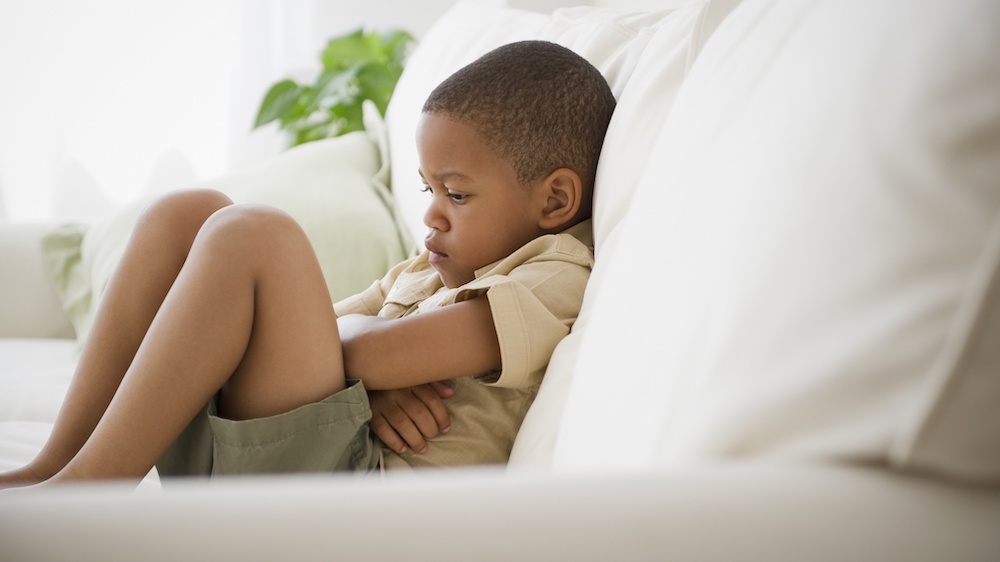If you’re interested in sharing your opinion on any cultural, political or personal topic, create an account here and check out our how-to post to learn more.
Opinions are the writer’s own and not those of Blavity's.
____
We are living through an intersectional reckoning. The pandemic has exposed and, in many instances, exacerbated disparities in our healthcare system that have long been dormant, or outright ignored. This is especially true when it comes to mental health.
Black and brown bodies, communities and lives have been ravaged by the pandemic. The pandemic has been disorienting for all of us and disrupted our lives in ways we haven’t realized. And yet, after over a year and a half of devastation, loss and uncertainty, we are only just starting to acknowledge the mental health implications of this global pandemic.
We need to bring our communities together to provide support and empathy for the ongoing mental trauma experienced by our kids — especially Black and brown kids — over the last year and a half. I enter this conversation as a mother, a wife, a daughter, a friend and the CEO of DoSomething.org, the largest nonprofit exclusively for young people and social change.
As we approach the last few months of 2021, I can only imagine how young people are feeling right now: happy yet anxious, or excited yet confused, maybe even traumatized. So, what can we do? I spend many of my days at DoSomething listening to the concerns, wishes and passions of young people. They express concern about the mental health epidemic that seems to impact each of their friends, and they want to do something about it. To ensure the health and safety of young people, we must join them in doing what we can to support the mental health and wellness of young people.
Advocate For Mental Health Support For Young People
DoSomething has partnered with the Chicago-based Allstate Foundation to launch the “It’s (Not) All in Your Head” campaign to activate young people to highlight the importance of providing sufficient and equitable mental health resources for students in schools nationwide.
This campaign activates youth to scan a QR code to access free mental health resources for young people, including resources specific to people of color and other diverse populations. The campaign also activates youth to advocate for additional mental health resources in their schools and school districts, making a short-term and long-term impact. Parents, educators, mentors and anyone responsible for shaping a successful school year must listen to and support our kids in addressing the mental health challenges they’ve identified.
Talk About Mental Health Openly And Candidly
The best way to destigmatize mental health is to talk about it. DoSomething and our millions of members have been doing our part to destigmatize mental health issues and ensure that youth have the resources to talk out loud about the challenges they face and get the support they need.
Last year, during the first peak of the pandemic, over 31,000 DoSomething members stood up for each other and other young people by contributing to the first of its kind mental health guide by students for students. They shared their advice about how to survive during these stressful and uncertain times. Their advice ranged from “dancing the stress away” to finding “someone to talk to about it.”
This year, as a part of the “It’s (Not) All in Your Head” campaign, we’re activating youth to own their mental health by arming them with accessible resources and the ability to advocate for systemic change to expand mental health resources in their schools.
Encourage Healthy Media Habits
In my home, I constantly worry about how the rapid shift to a digital world has impacted my 9 and 10-year-old daughters. We went from a household where iPads were for airplanes to one where your iPad became your school learning device and daily lifeline to your friends. Adolescents don’t always know how to navigate text messaging, chatter in games, or cyberbullying. So now I must be extra vigilant to educate myself, while educating them, about healthy and safe online behavior.
The American Academy of Child & Adolescent Psychiatry offers sound advice for parents about how to create good media habits during COVID-19, including creating a daily schedule to ensure that most of the youth’s time is not spent on screen.
Make Every Day Mental Health Awareness Day
As we work to destigmatize mental health, let’s remember to check in with the young people in our lives daily, not just on days like October 10, which was World Mental Health Day. I’m also heeding the advice of The American Academy of Child and Adolescent Psychiatry (AACAP) and “acknowledging young people’s fears and working to answer their questions honestly, using words and language they can understand.” The AACAP also advises to “watch for signs of stress … and if problems persist, ask for a referral to a trained and qualified mental health professional.”
I’m taking this advice with me to work every day. I’m consulting DoSomething’s members, partners, and sponsors to ensure that our campaigns and programming resonate with and support youth in owning their mental health. Now is not the time for bystanders. As the largest nonprofit for youth and civic activism, we must stand squarely in this moment and ensure that we’re using all the tools in our toolbox to develop campaigns and programming that activates and catalyzes youth for systemic impact.
____
DeNora Getachew is the CEO of DoSomething.
